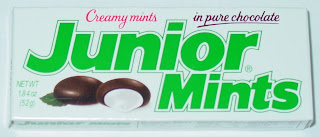These are a few further reflections from the seminar on Wednesday.
As part of its efforts to implement Hargreaves, the IPO has launched a
call for evidence and the idea of the seminar was to review and discuss the
results of the research ("evidence") that has already been delivered to the IPO.
There is also
a survey (not for lawyers, but for our design clients) and then we get a formal consultation which will likely contain some substantive proposals for change to UK design law. Prepare to say a fond farewell to the much mangled Registered Designs Act 1949 and lets look forward to a whole new codification of design law that kicks out copyright and gives a national system that is understandable and consistent with European law.
Design registration in the UK has never had the uptake governments would have expected and the UK IPO would like to know why. I confess I do too. Since we work with clients with an interest in design perhaps we have some insights we can share with the IPO team. Personally I struggle to add value for design clients. Once they have grasped how to get the drawings right then its often better to make the applications themselves as the idea is its supposed to be a cheap and easy process. Getting the drawings right is no mean feat. Some unscientific research on the
UK Designs Register shows that most applicants do represent themselves and if you are a litigator you might worry a lot if you were trying to rely on some of these registrations.
Proposal 1 for further research then is to analyse the users of the current system from the UK and see whether they feel they can access the support and help they need to make the system work for them.
The paper based filing system is the first problem area and the
purring of the IPkat has already been heard by the IPO team and it got plenty of support at the seminar. However you can understand some reluctance to implement a system if it will be underused. WIPO was represented at the Seminar by Gregoire Bisson who runs the Hague system. He reports that his software came from OHIM but they have improved it. It certainly seems to pass the useability test for the in-house user. If he can get the US to join Hague (and he has it in the sights) then he will have a much more valuable system.
The focus of the seminar tended to be on the designer and it assumed that copying was bad. We need to test that. Registration and attempted enforcement of unoriginal design could have a chilling effect on creativity and the
London Design Festival, which ended yesterday, certainly shows that the UK has the creativity. Chapter 3 of the Research a paper based on a small pilot study showed that experience of copying did not increase likelihood of registration.
Proposal 2 is that the attitude to copying needs to be investigated and understood. Anecdotally I can say that there seems to be a preference for *muttering*; getting media attention and even the deplorable practice of sending cease and desist letters with no intention of follow -up enforcement. Is this because UK business has lost faith in the judicial system or that there is a rationalization that the actual damage does not justify even the management time of serious complaint. Maybe even its a *do as you would be done by* approach. If I complain will I find myself at the receiving end of complaints.
Design protection needs to be manageable more like copyright protection than patent protection. Maybe we should see the IPO offering more advice and support in the development and implementation of protection strategies. Perhaps the call for evidence can support a pilot workshop or two to give how to file advice to those who should be using the design system so that it is clearer how or whether online filing would help. That is
Proposal 3.
What do you think - is there a future for design protection in the UK or should we just leave it to Europe and use this legislative opportunity to delete the UK law on this topic.




































